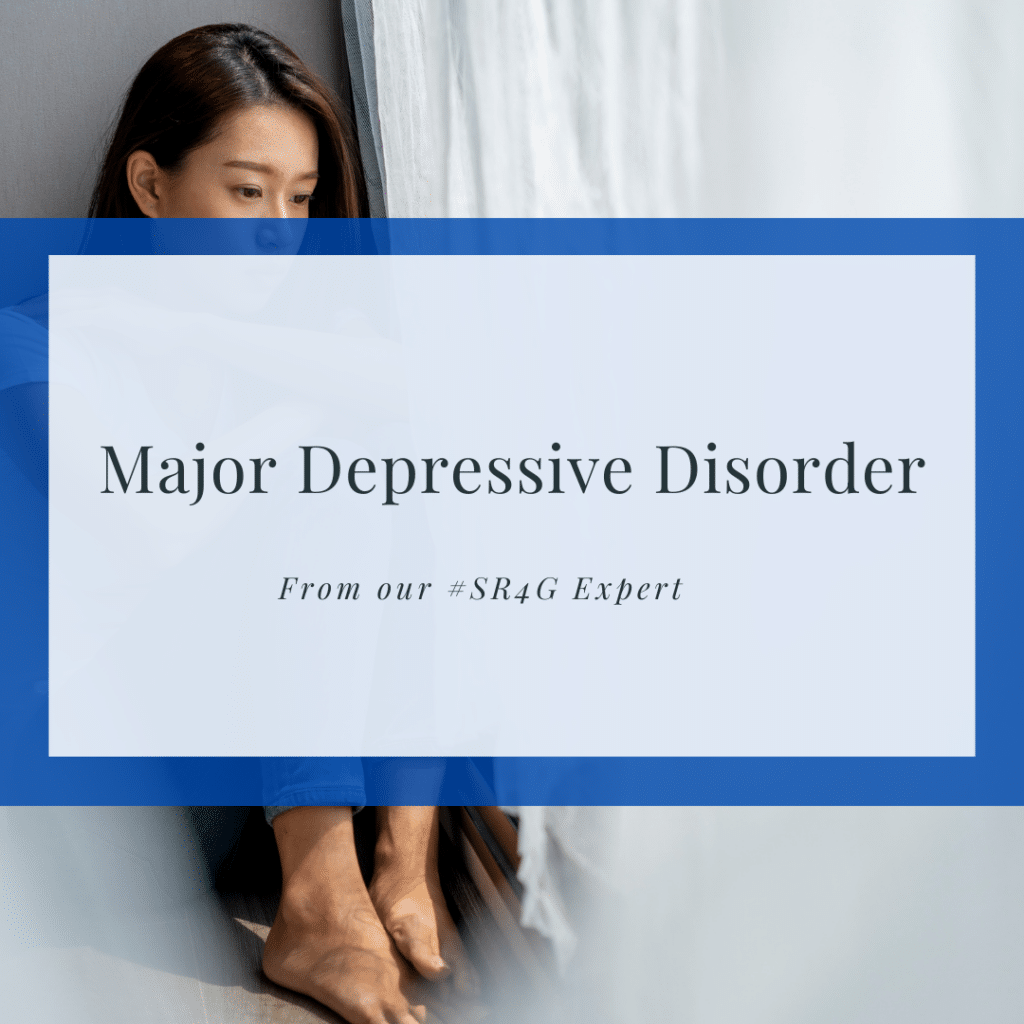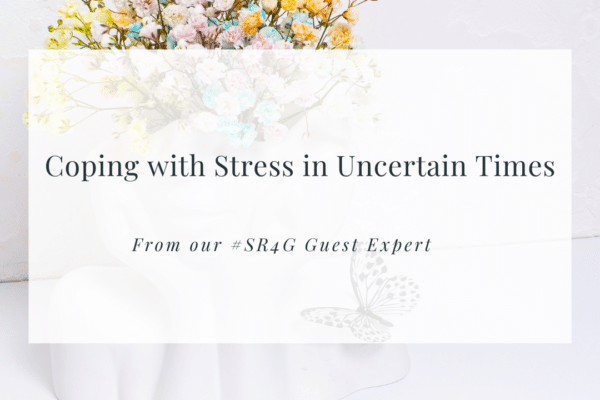
Written By: Jayme Kolbo, MA, Licensed Professional Clinical Counselor, founder of OCD & Anxiety Wellness Collective
Sadness and grief are a normal part of the human experience. Depression, or Major Depressive Disorder, differs from sadness and grief in the frequency, intensity, duration, and functional impairment it causes. It is one of the most common mental health disorders in the United States, impacting about 17 million U.S. adults annually and almost 30% of the population over the lifetime. Women are more likely to be diagnosed with depression than men, although that may be due to under-reporting, under-utilization of mental health services, and higher rates of self-medicating in men. Those in the LGBTQIA+ community are also at higher risk of experiencing depression in their lifetime. Depression is the leading cause of disability worldwide, which speaks to the seriousness and functional impairment it can cause.
So what is Major Depressive Disorder? Major Depressive Disorder (MDD), or depression for short, is one of many depressive disorders in the Diagnostic and Statistical Manual of Mental Disorders, or DSM-5-TR. It includes at least one major depressive episode, which is defined as a period of at least two weeks (typically more) of an unusually down, depressed mood and/or loss of interest or pleasure in activities for most of the day nearly every day. During the two week period, individuals will also experience four or more of the following symptoms: either significant weight loss (loss of appetite without dieting) or significant weight gain (over-eating), under- or over-sleeping (insomnia or hypersomnia), psychomotor changes including agitation (i.e. pacing) or retardation (i.e. pervasive slowness in movement, speaking, and thinking), fatigue or loss of energy, feelings of worthlessness and/or excessive guilt (negative evaluations of one’s worth and excessive self-blame), decreased ability to think or concentrate including indecisiveness, and/or recurrent thoughts of death, suicidal ideation, or suicide attempts. All of these symptoms cause clinically significant distress and/or impairment in social, occupational, educational, or other important areas of functioning, including difficulty with activities of daily living.
The good news is that depression is treatable. Around 70-90% of individuals with Major Depressive Disorder, even the most severe cases, will respond to treatment. The earlier the intervention, the better. Among the first lines of treatment for depression are psychotherapy and medication. Many evidence-based therapies can be effective, including Cognitive Behavior Therapy (CBT), Interpersonal Therapy (IPT), and Psychodynamic Therapy. For many individuals with depression, healthy exercise/movement, proper nutrition, sleep hygiene and avoiding drugs/alcohol is extremely important. For individuals with treatment resistant depression, brain stimulation therapies such as electroconvulsive therapy (ECT), repetitive transcranial magnetic stimulation (rTMS), vagus nerve stimulation (VNS), and/or deep brain stimulation (DBS) may be options.
It is important to seek an assessment from a mental health professional if you or a loved one is experiencing or has experienced these symptoms. A thorough assessment can help differentiate normal sadness and/or grief from depression, and will rule in or out other potential mental health, substance use, and/or medical concerns that could better explain symptoms.
The systems we have in place in the United States can be confusing and make it difficult to find necessary mental health care. I recommend starting with your primary care doctor who can refer you to mental health professionals in your area, or seeking recommendations from trusted loved ones who have navigated the mental health system already. You can also search therapist directories such as Mental Health Match, Anxiety and Depression Association of America, or Psychology Today. If you want to use your health insurance for therapy, I recommend contacting your insurance carrier directly and asking for a list of in-network mental health therapists who treat depression (or any specific concern). These lists are often out-dated, so I recommend looking therapists up and reading their profiles to find who is still practicing and may be a good fit for you. It’s important to remember that using your health insurance for a covered service does not necessarily mean you will not have to pay for that service. Deductibles, copays, and coinsurance all can apply to mental health treatment. I recommend contacting your insurance company if you are wanting to use in-network or out-of-network benefits. It’s important to know the specifics of your health insurance plan so there are no surprise bills.
It is okay to contact multiple therapists, as many offer free phone consultations to determine if it’s a good fit before scheduling. The therapeutic relationship is imperative for change across specific therapy modalities, so it’s important to find a therapist you trust. Mental health therapists often cannot prescribe medication, so you may need to ask your doctor, loved ones, and/or your insurance carrier for referrals to psychiatrists or psychiatric nurse practitioners. Some primary care providers will also prescribe medication.
If you or a loved one are in need of emergency/crisis support, call 988 to be connected to a crisis line, call 911 to be transported to a hospital, or go straight to your nearest emergency room department. You can also text “HELP” to 741741. The National Suicide Hotline number is 1-800-273-8255. Walk-In Counseling Center in Minneapolis and Walk-In Crisis Services at Urgent Care in St. Paul both offer free walk-in therapy services. Additional crisis lines are listed below:
Substance Abuse and Mental Health Services Administration (SAMHSA) National Helpline 1-800-662-HELP (4357)
NAMI (National Alliance for Mental Illness) Helpline 1-800-950-NAMI (6264)
The Trevor Project (LGBTQ) Youth Crisis Line 866-488-7386, text “START” to 678678
Transgender Lifeline 877-565-8860
National Domestic Violence Hotline (USA) 1-800-799-7233
Veterans Crisis Line 1-800-273-TALK (8255), or 988 and press 1
Ayuda en Espanol Lifeline ofrece 24/7, servicios gratuitos en español, y no es necesario hablar inglés si usted necesita ayuda. 1-888-628-9454
References:
American Psychiatric Association. (2022). Diagnostic and statistical manual of mental disorders (5th ed., text rev.). https://doi.org/10.1176/appi.books.9780890425787
American Psychiatric Association. (2024, April). What is depression? Psychiatry.org. https://www.psychiatry.org/patients-families/depression/what-is-depression
Serious Mental Illness Advisor. (2020). Major Depressive Disorder. SMIAdvisor.org. https://smiadviser.org/wp-content/uploads/2020/08/SMI_NAMI_MajorDepressiveDisorder.pdf
U.S. Department of Health and Human Services. (2024, March). Depression. National Institute of Mental Health. https://www.nimh.nih.gov/health/topics/depression#part_2257
Disclaimer: This newsletter article is a brief synopsis of information about depression that is intended for informational purposes only. It is intended to help spread awareness, decrease shame, and increase hope for those impacted by depression. This newsletter may not apply to every individual in every context. Every individual is unique and newsletters cannot speak to all of the nuances and complexities of human nature. This information is not intended to replace therapy or recommendations from healthcare providers. Seek an assessment from a trusted mental health professional for recommendations specific to your needs.

